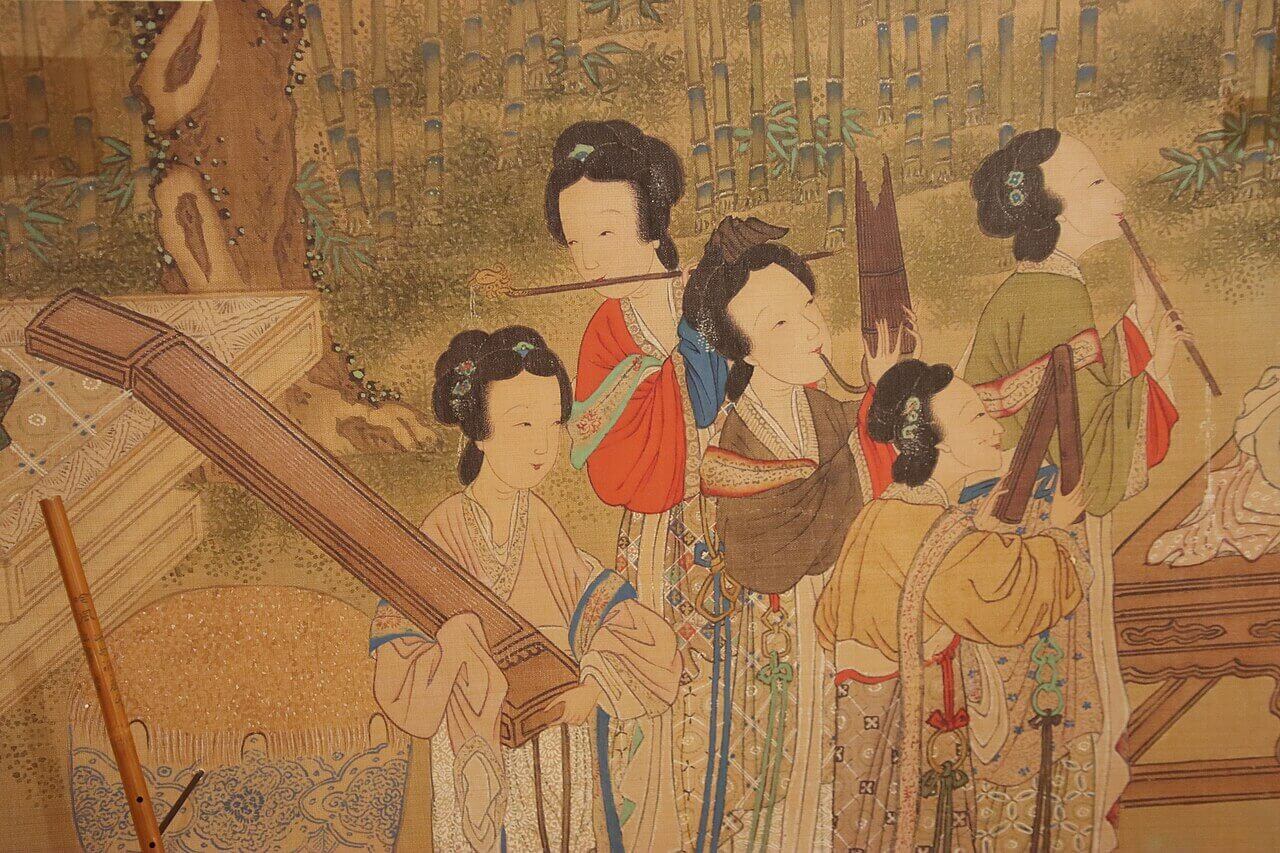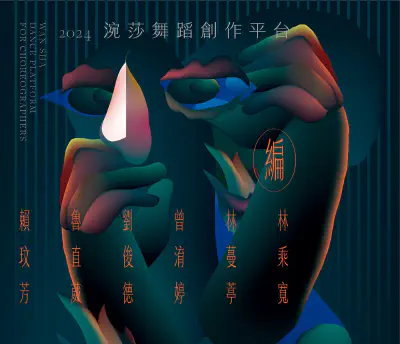On 21 January, we ran our first Wind&Bones public philosophy salon in Chinese, in collaboration with the Wansha Performing Arts Centre (涴莎藝術展演中心) in Tainan, Taiwan. We’re running these salons monthly, and we’re planning to publish an essay on the topic of the salon after each one. This is the first one, where we talked about philosophy and music.
A human universal
Music is about as close to being a human universal as anything. Human beings everywhere holler, sing, drum their fingers, tap their toes, chant, whistle… But the question of what music is, and how we can best think about music, is one that has preoccupied philosophers for centuries.
The Confucian philosopher Xunzi at the beginning of his treatise on music, both attests to the universality of music, and also argues that music is rooted in human emotion. “Music is joy,” Xunzi writes, “an unavoidable human disposition” (夫樂者、樂也,人情之所必不免也).
Music and joy
In both Classical and contemporary Chinese, these two ideas of music and joy are so close, they share the same character: 樂. The two readings of the character are only distinguished by their pronunciation. Spoken as “lè”, the character means “joy”, and spoken as “yuè”, it means music. According to my etymological dictionary, the latter meaning is the primary one: 樂 depicts a stringed instrument, where the upper component (𢆶) represents the strings, and the lower component (木) represents a wooden structure. The bit in the middle — 白 — is a component that originally indicated the sound of the word.
I like this idea that music is rooted in joy, in part because philosophical approaches to music often seem pretty abstract. But thinking about music as joy roots it in our bodily experience: the way music vibrates through us. When I was a teenager, I played classical guitar. Every morning at six o’clock, I would creep downstairs, click on the electric fire to drive out the cold, and practice for an hour or more. And what I remember most of those chilly mornings was the feeling of how, when I plucked the strings, the body of the guitar thrummed against my body, the sheer physicality of how music runs through us, the joy of it.
Bad tunes
There is something challenging about this for philosophers because so much of what music does to us seems to happen prior to all our theorising. Xunzi writes that “sound and music enter into us quickly, and transform us” (夫聲樂之入人也深,其化人也速) — perhaps before we have even had a chance to know that this is what they are doing. And this has led to a philosophical suspicion of music. Or, at least, certain kinds of music. Xunzi is all for music that leads to harmony and the proper ordering of society. But he worries about the social effects of the wrong kind of music, saying that “If music is dissolute and dangerous, then the people will be dissolute, arrogant, vulgar, and base” (樂姚冶以險,則民流僈鄙賤矣).
This anxiety is a surprisingly recurrent one, and Xunzi is not alone in this worry. In early 20th Century America, there was a moral panic around jazz, rooted in the racist fears of white America (you can read some well-chosen examples here). In an article published in the Chattanooga News (August 25, 1919), Harold K. Phillips decried “shimmery, shivery, shimmy syncopations, ear-splitting jazz music and public vulgarity poorly disguised as dancing”, and argued — very much in line with Xunzi — that we should encourage “more graceful and more moral trots to the tune of a tempo.” Meanwhile, Dr. Henry van Dyke, a professor at Princeton theological seminary, claimed in The New York Herald (March 13, 1921) that “Jazz… was invented by imps for the torment of imbeciles. True, it does not contain any distinct immoral teaching because music is not a didactic art, but jazz does contain a real immoral influence because it confuses, bewilders, benumbs and befuddles the mind through the ears. It is, in effect, the dope or knockout drop in the art of sound.”
Music and moral education
Plato more or less agreed, and for this reason, believed that education could not ignore music. Here he is ventriloquising Socrates in The Republic.
And so, Glaucon, isn’t this why musical education is so important? Firstly because rhythm and mode penetrate more deeply into the inner soul than anything else does; they create the strongest foundation, since they bring gracefulness with them. They make a person graceful, if he is rightly brought up, and the opposite, if he is not.
The language here is very close to Xunzi. Rhythm and mode, “penetrate more deeply into the inner soul than anything else does.” As for Xunzi, so for Plato: the right kind of music can lead to a proper social harmony, but the wrong kind of music can lead to chaos. But for Plato, there is something else happening as well. Because of this directness, Plato argues, through music the young can develop a feeling for order and disorder, for what is beautiful and well-made, and what is ugly and badly made. Through proper education in music, the soul becomes more refined, so that when we get to an age where we are capable of reason, we can recognise reason by its sheer beauty and order — as if it were an old friend — and delight in it. Music doesn’t just make us harmonious. It makes us rational.
Messy music and messy joy for messy lives
This is all very well, and I confess that I do love the exquisitely ordered mathematical intricacies of Bach, for example. But I’m uneasy with attempts to impose moral frameworks on music in the way that Xunzi and Plato do, just as I am uneasy with way in which, a century ago, the proponents of “more graceful and more moral trots” poured scorn on jazz.
There are several reasons for this unease. One is that these calls to order all too often mask the exercise of power. In early 20th century America, the moral condemnation of jazz was inseparable from the broader culture of racism. And in Xunzi’s China, it’s hard not to think that what a ruler may consider to be chaos may, for their subjects, be the end of an oppressively stultifying rule.
The second reason is that it’s not entirely clear that music does go straight to the soul, without the mediation of culture. Some of the tunes those early American critics of jazz most feared, and that they deemed impossibly hard on the ears, are the same tunes that are piped out as easy-listening in contemporary restaurants and coffee-shops: safely retro, reassuring, no longer strange and unfamiliar. The meanings of music change as the culture changes.
But the final reason goes back to Xunzi, and the double meaning of 樂 as music (yuè) and as joy (lè). Because if music is joy, then we have on our hands something much less amenable to our control than we imagined. Joy may be calm, harmonious, steady. But equally, it may be raucous, fractious and wayward — spilling out over the sides, unpredictable and unruly. Joy — rooted in the body and its cross-currents, its surges and gusts of life and energy, its processes of ordering and disordering — is not a single emotion. We human beings, to the regret of philosophers, are irredeemably messy. And our joys are sometimes — often, perhaps — messy joys. Sometimes, to quote Conor Oberst’s song The Road to Joy, you just want to fuck it up and make some noise. Sometimes, you may need to. And there is creative power, and goodness, in this as well.
Joy and Power
A final thought: perhaps you can read Xunzi’s treatise on music instead as a treatise on joy, and on how bodily joy is a threat to power — one that needs to be channelled and managed so that this power can be maintained. When Xunzi writes, “When all the dancers are restrained and orderly, exerting to the utmost the strength of their bones and sinews to match the rhythm of drum and bell sounding together, and no-one is out of step, then how easy it is to tell the meaning of this group gathering,” he does not sound far different from Harold K. Phillips and his praise of “moral trots.” And while there are joys to be found in moral trots and restrained, orderly rhythms, there are other joys too, joys that are less easily tamed.
And if we find that the orchestration of our joys is in the service of structures that are unjust in their exericse of power, as we sometimes might, there may be not just the temptation, but also the moral demand to fuck things up, to find ourselves out-of-step. Because sometimes goodness lies in harmony; but at other times, it lies in refusing to trot along with the demands of power. It lies in our fractious hollering and singing, the drumming of our fingers and tapping of our toes, our whistling, and our chanting, our propensity to dance and whoop and wail…
References:
Xunzi (trans. Eric L. Hutton), Xunzi: The complete Text. Princeton University Press, 2014.
Plato (trans. G.M.A. Grube, rev. C.D.C. Reeve), “Republic”, in Plato: Complete Works Edited, with Introduction and Notes, by John M. Cooper (Hackett 1997)
Image credit: Terry Ballard, Creative Commons Attribution 2.0 Generic via Wikimedia Commons



